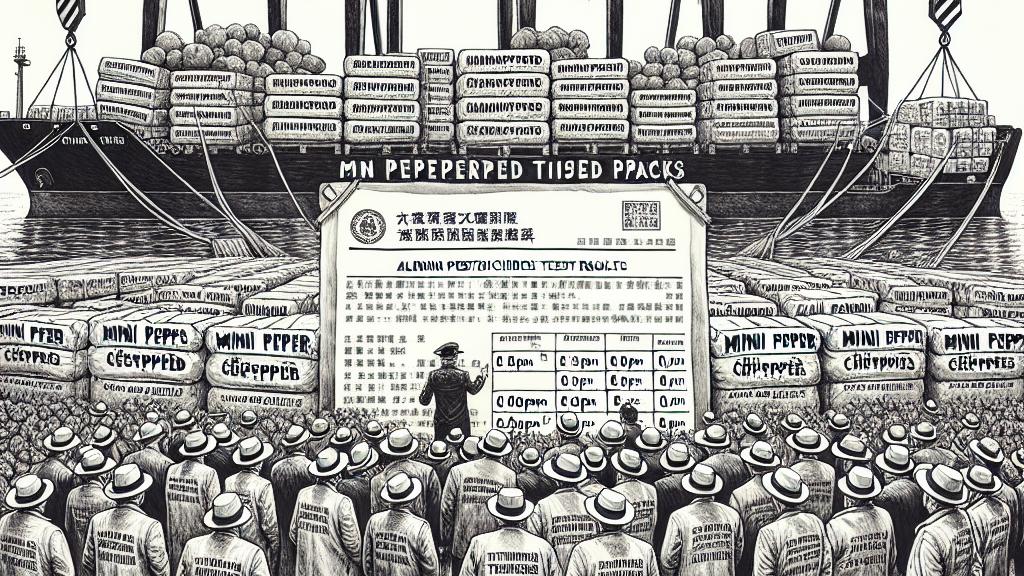Pepper Panic: Taiwan Cracks Down on Toxic Japanese Imports!
Overview
- Taiwan's Food and Drug Administration seizes toxic Japanese spices over pesticide violations.
- Inspection rates for imported products doubled to enhance food safety.
- Chinese chili imports face strict scrutiny after multiple pesticide residue violations.

Incident Overview: Seizure of Japanese Spices
Taipei, Taiwan, witnessed a critical food safety issue on August 20, 2024, when the Food and Drug Administration (TFDA) took decisive action against a shipment of mini pepper packs imported by ZENSHO Taiwan Co., Ltd., which operates popular restaurant franchises such as Sukiya and Hamasushi. The batch, weighing 10.8 kilograms, was seized after it was found to contain alarming levels of pesticides—0.36 parts per million (ppm) of acetamiprid, far exceeding the legal threshold of 0.05ppm, and 0.08ppm of chlorpyrifos, a pesticide banned for import into the country. This incident underscores the importance of enforcing stringent food safety standards to protect consumer health and maintain public trust in imported food products.
Regulatory Actions and Increased Inspections
In response to the violation, the TFDA has announced a significant increase in inspection rates for ZENSHO’s future imports, escalating from a previous standard of 2-10% to a much stricter 20-50%. This policy reflects Taiwan's unwavering commitment to ensuring the safety of its food supply. Moreover, the TFDA revealed that in addition to the Japanese spice incident, two shipments of dried chili from China—totaling 16,000 kilograms—were also seized due to pesticide residue violations. These shipments contained fipronil, an insecticide with permissible limits set at 0.002ppm, illustrating the ongoing challenge of ensuring compliance among imported food products and reinforcing the necessity for comprehensive oversight.
Pesticide Residues: Explanation and Regulations
Pesticide residues pose a serious public health concern, referring to the remnants of chemicals used for pest control that may linger on crops. Regulatory bodies worldwide, including Taiwan’s TFDA, establish maximum residue limits (MRLs) to ensure food safety. Following recent inspections that identified elevated pesticide levels, Zhejiang province's dried chili shipments are now subjected to thorough monitoring, with stringent compliance required over the next year. The regulatory landscape establishes clear guidelines designed to limit pesticide exposure for consumers. As consumers increasingly demand transparency and safety, Taiwan's proactive measures illustrate a robust commitment to elevating food safety standards and protecting public health against potential hazards from imported foods.

Loading...